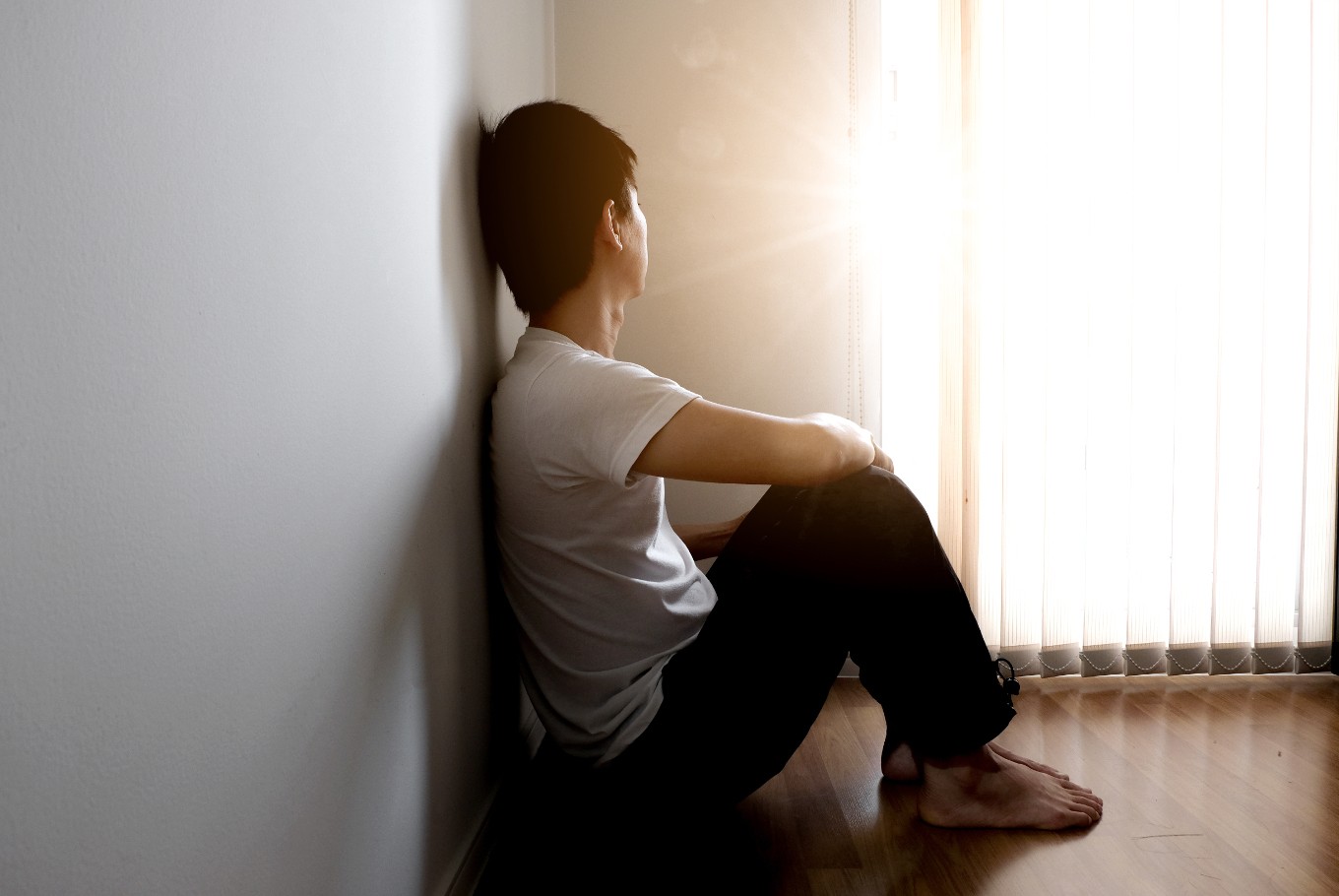Popular Reads
Top Results
Can't find what you're looking for?
View all search resultsPopular Reads
Top Results
Can't find what you're looking for?
View all search resultsPeople with bipolar disorder seek strength amid social distancing
Change text size
Gift Premium Articles
to Anyone
B
eing isolated and cut off from social interaction and everyday routines can be hard for everyone during the COVID-19 pandemic. It presents an even bigger challenge to those living with bipolar disorder whose support system is an integral part of their well-being.
Content creator Olivia Fabriane, 25, has been working from home for almost two weeks since authorities imposed a so-called social distancing policy to limit the spread of coronavirus by reducing physical contact between people.
Jakarta is now the epicenter of the COVID-19 pandemic in the country with 1,414 cases and 122 deaths as of Monday.
“It is hard because I couldn’t see my psychologist for a psychotherapy session. I also don’t dare to go to the hospital to restock my medication because I'm afraid of contracting the coronavirus there,” Olivia told The Jakarta Post on Saturday.
Olivia was diagnosed with clinical depression in 2011 and bipolar disorder in 2017.
For Olivia, social connections and mental support from her friends and psychologists are essential for her well-being. With the COVID-19 pandemic she now lives in constant worry over the safety of her family, friends and herself. Social distancing, also known as physical distancing, makes it harder for her to seek the optimal mental support from her closest circles.
“It needs extra effort for me in coping with bipolar disorder. It is hard for me to concentrate and I cannot think clearly. More negative thoughts pop up when you are stuck at home for a long time," she said.
"Several days ago, I hit rock bottom and I could only get support from my friends through mobile messaging apps,” she said.
And although her psychologist offered her online consultation sessions by video call, Olivia said it was far from sufficient.
“It was not ideal because it relied on a stable internet connection. Not to mention the 15-minute limit per session because other patients were also waiting in line for consultation sessions with the psychologist,” she said.
"I think the demand for mental health consultations has increased these days because many people feel worried and stressful [because of the pandemic]."
Bipolar disorder is a mental illness marked by extreme mood swings that cause unusual shifts in concentration, energy, activity levels and the ability to carry out day-to-day tasks. It is associated with episodes of mood swings ranging from depressive lows to manic highs.
The exact cause of the disorder remains unknown but experts believe that a combination of genetics, environment and altered brain structure and chemistry may play a role.
March 30 is marked annually as World Bipolar Day to educate people about bipolar disorder and end the stigma surrounding the illness.
Mental health experts urge families and friends of people living with bipolar disorder to give them extra support during the COVID-19 pandemic.
The codirector of Bipolar Care Indonesia (BCI), Agus Hasan Hidayat, said that most of the members of the group had shared how the COVID-19 situation had negatively impacted on their mental health. The biggest stressor, Agus said, was the news related to the coronavirus.
“Many have been worried about access to treatment these past two weeks, especially because there is an appeal that they shouldn’t see psychiatrists except if there is a serious situation that they cannot control," Agus said. "While in fact they need regular counseling and medication."
There is no official data on how many people live with bipolar disorder in Indonesia, but estimates put the prevalence between 1 to 8 percent of the population, and that nearly 45 percent of affected people don't get diagnosed properly.
The BCI alone has recorded more than 700 people with bipolar disorder registered as its members. Most of them are students and white-collar workers who are now studying and working from home to maintain COVID-19 physical distancing.
“People with bipolar disorder need to limit their information intake on COVID-19,” Agus said. "Those living alone in a rooming house are in a more worrying situation because their social interactions and activities are very limited compared with those living with family.”
Gina Anindyajati, a general psychiatrist at the Cipto Mangunkusumo National General Hospital, said that while people were physically distant during this unprecedented period, it was crucial to maintain social contacts, especially for those with bipolar disorder.
“What we need right now is social connection and empathy. […] Ask each other about their condition, share stories, send each other food, a simple form of attention is really helpful for them,” she said.
“It is also important for them to maintain routine activities and a daily schedule. It is also important for them to do something relaxing," she said.
Benny Prawira, founder of Into the Light Suicide Prevention Community, highlighted the importance of people with bipolar disorder getting enough sleep and never skipping on prescribed medication.
He stressed that people must first take care of themselves during the pandemic before caring for those with mental illness since it can be a challenging task.
“Giving our support [to people with bipolar disorder] when we ourselves also need to adapt to the [COVID-19] situation is not an easy thing to do,” he said.










